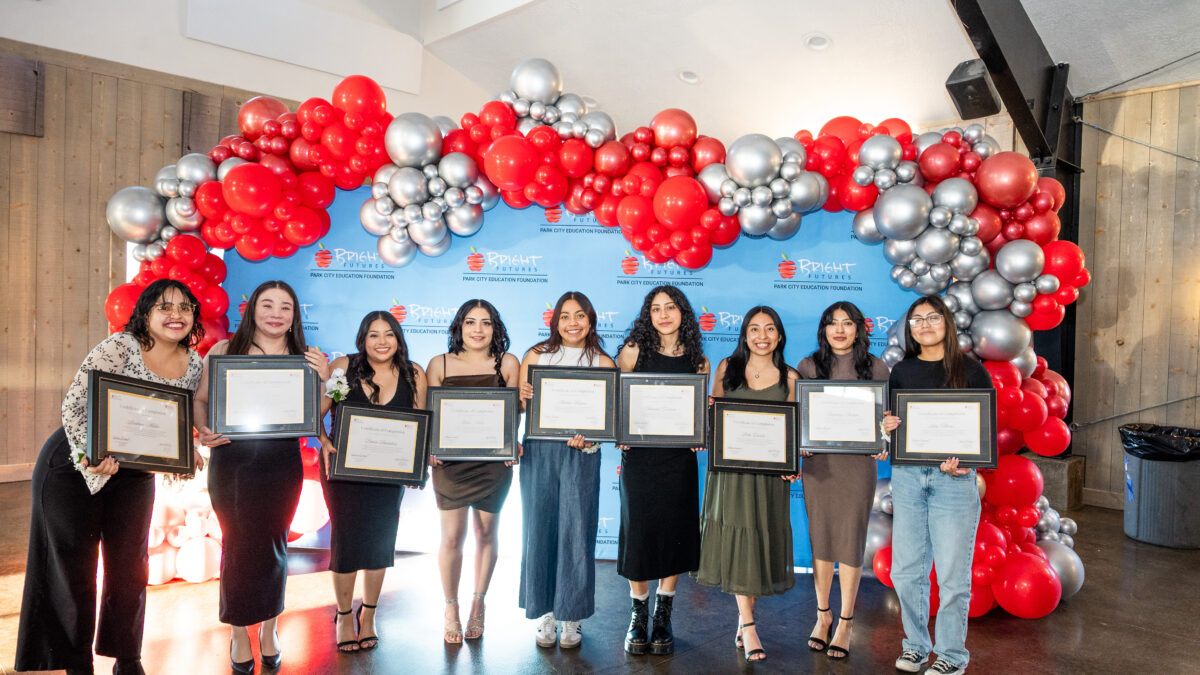Education
Bright Futures overhauls program model, embeds counselor at Park City High

Photo: Park City Education Foundation
PARK CITY, Utah — Bright Futures, the flagship college-access program of the Park City Education Foundation, will embed a full-time, licensed college counselor at Park City High School next fall, a structural shift the foundation says will open services to every first-generation student — one whose parents have not completed a four-year college degree — while preserving the intensive support that has defined the initiative for nearly a decade.
Beginning with the 2025-26 school year, the counselor will work exclusively with first-gen ninth- through 12th-graders during the regular school day, eliminating scheduling conflicts that often prevent students juggling jobs and family duties from seeking help after class.
“Bright Futures was built on the belief that every first-gen student deserves the tools to thrive and to pursue their post-secondary goals,” said Ingrid Whitley, president and CEO of the foundation. “By embedding support into the school day, we’re honoring that mission while reaching more students than ever.”
Measured success
Since its launch in 2015, Bright Futures has served roughly 200 students, recording a 100 percent college-acceptance rate and a 64 percent college-graduation rate. The program currently counts 25 alumni with degrees, 66 students enrolled in college and 85 high-school participants.
What will stay in place
- One-on-one coaching for students already attending college
- College visits, FAFSA help, scholarship guidance and other readiness programming
- Scholarships of $1,000, additional needs-based aid, and emergency grants for unforeseen financial challenges
- Peer-to-peer and alumni mentoring events
What will change
- Dedicated, in-school counseling for all first-gen students, supplementing traditional guidance assignments
- Closer collaboration with Park City High School staff to identify emerging needs
- Broader outreach designed to ensure no eligible student is overlooked
“The redesign better aligns with our organization’s core value of equity and inclusion, as well as the evolving post-secondary landscape,” Whitley said.
A small group of longtime donors have withdrawn support, saying they preferred the earlier opt-in model. In a letter written by founding sponsors to the foundation’s board they said historical knowledge of the program would have been helpful in making changed to the Bright Futures program.
The sponsors also said they had been responsible for the program’s financial success and that they were largely responsible for more than $3M in funding the Bright Futures program has recieved so far.
“We have invested our time and money because we care deeply about these students. We worry that their futures are now in jeopardy,” the sponsors wrote.
The foundation maintains the new structure will serve more students without diminishing the program’s core mission. In response to the opposition, Whitley thanked PCEF donors for their generous support, including those involved at the beginning of the program.
“It is important for programs to continuously reflect and assess their impact. Over the course of a decade of running this program, we have made changes to better respond to and meet students’ needs. This is yet another inflection point in how we continue to evolve this program to best serve students. We hope donors who care about supporting first-generation students feel inspired to continue their support.”
Donors and community members can learn more about the transition and contribute to Bright Futures on the foundation’s website.



















